
 Flash News
Flash News
Police officer in Kukës is raped, he is cut off under his house and beaten with hard objects
100 days or 16 years?
Saranda/ Election materials arrive for May 11 under police and military supervision
Student falls from second floor of school in Gjirokastra
From the maritime agreement with Greece to the Rama-Soros connection, Berisha speaks about the Greek media
In times of turmoil for democracy and the economy: Friedrich Merz becomes Germany's tenth chancellor, expectations and challenges
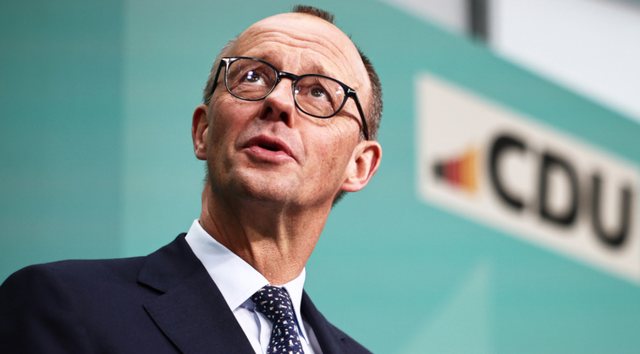
Friedrich Merz has been officially elected as Germany's new chancellor, taking office at a crucial moment for the country and its role on the international stage. After a second vote in the Bundestag, Merz became Germany's tenth chancellor since the end of World War II.
The 69-year-old Christian Democratic Union (CDU), who won elections in February and reached an agreement to form a majority government with the Social Democrats (SPD), comes to power after a six-month period of government deadlock caused by the collapse of Olaf Scholz's coalition.
“We live in times of great turmoil and uncertainty,” Merz said during the signing of the new government agreement. He stressed that Germany’s new leadership must face extraordinary challenges, both domestically and in foreign policy.
Among the main challenges is the return of the Donald Trump administration in the US, which has threatened to impose tariffs on the European Union and withdraw from traditional European defense responsibilities. The German economy, already stagnant due to the energy crisis and global competition, could face a deep recession if these American plans come into effect.
Merz, who previously worked as a private sector consultant and is a supporter of transatlantic relations, has faced criticism but also high expectations for bringing stability and a new vision to Germany. Analysts see his appointment as a signal that Berlin is ready to play a leading role in Europe again, after a period of uncertainty under the Scholz government.
Domestically, Merz has stressed the need to curb the rise of extremist parties, such as the Alternative for Germany (AfD), which was officially declared “extremist” by domestic intelligence and is under increased surveillance. To counter these risks, the new chancellor has signed an agreement with the SPD to relax the constitutional debt limit and significantly increase investment in defense and infrastructure.
He has also promised to reform the national security structure, through the creation of a National Security Council that will function under the chancellery and coordinate foreign and defense policies.
"Germany can no longer be just an observer of European politics. It must lead and shape it," declared foreign policy expert Jana Puglierin.
Latest news





Berisha-Rama: The burner that was never lit will burn your political career
2025-05-06 21:24:49
Berisha from Durrës accuses Sakos and Gjushi: Terrorists of the elections
2025-05-06 21:13:15

The election materials of May 11 also arrive in Lezha
2025-05-06 20:53:44
Serious Challenges to Providing Doctors in Rural Areas in Kosovo and Albania
2025-05-06 20:37:55



Two riders die in tragic accident during Superbike race at Oulton Park
2025-05-06 19:46:35

He parachuted in Himara, Police take action against Jonathan Islam
2025-05-06 19:30:33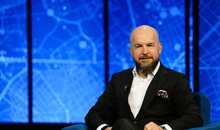
100 days or 16 years?
2025-05-06 19:12:46




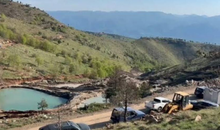





Bardhi akuzon drejtorin e Policisë Fier: Po pengon fushatën e PD
2025-05-06 17:17:22
Scandal/ Eduart Shalsi campaigns inside the Kukës police station
2025-05-06 16:56:02
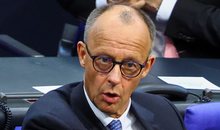
CDU leader Friedrich Merz elected German chancellor in second round
2025-05-06 16:32:52
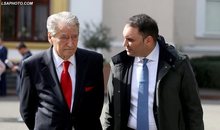
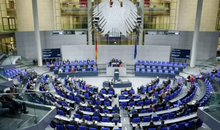


A suspect for espionage is detained in Kosovo!
2025-05-06 15:47:34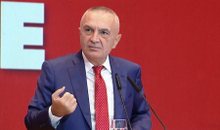
Meta: After May 11, new projects to heal the wounds of misgovernment
2025-05-06 15:37:29

Student falls from second floor of school in Gjirokastra
2025-05-06 15:14:37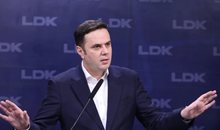
LDK proposes transitional government
2025-05-06 15:03:19
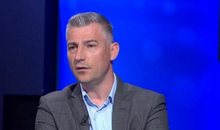

Incident in Korça, court releases Bledion Nallbat's brother
2025-05-06 14:27:19
Kopliku: The vote on May 11 for the DP-ASHM is the deserved punishment for Rama
2025-05-06 14:21:23
"Revival Caligula", Bujar Kapexhiu's gem of a caricature about Rama
2025-05-06 14:12:06
Rama's former negotiator, Zef Mazi, rejects EU passport propaganda
2025-05-06 14:07:43
The president of the Forza Italia senatorial group supports Berisha on May 11th.
2025-05-06 13:57:57
The Appeal Court of Appeal declares the mayor of Devoll, Eduard Duro, innocent.
2025-05-06 13:52:33

May 11th Elections, Bylykbashi: Extend the validity period of documents
2025-05-06 13:29:39
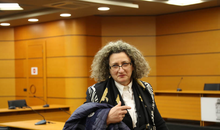
Convicted in Greece, after SPAK DP request to ILD: Dismiss judge Irena Gjoka
2025-05-06 13:09:35
Electoral crimes, SPAK takes stock: 115 reports have been filed so far
2025-05-06 13:00:37
Quarrel between two families in Has, two people injured
2025-05-06 12:53:08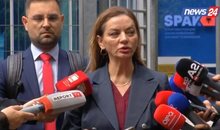
Voice before SPAK: I do not withdraw from the accusations against Vilma Nushi
2025-05-06 12:33:33
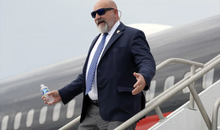

"Giro d'Italia" in Albania, here's how car traffic changes in Tirana
2025-05-06 12:04:17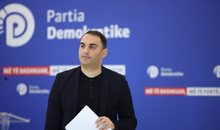
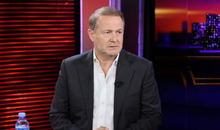

The collapse of the massive chrome mine, still no sign of the old man in Klos
2025-05-06 11:29:31
Xhaferri: Crime gangs work for the MPs they want
2025-05-06 11:19:53
Zhupa in Ksamil: 'The Maldives of Europe' turned into a trash can
2025-05-06 11:10:55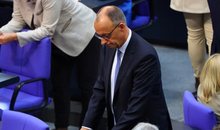
Merz fails to be elected German chancellor
2025-05-06 11:00:00
The fall of the euro is boosting imports in quantity, increasing by 14% in 2024
2025-05-06 10:56:33
Accident in Roskovec, two passengers injured
2025-05-06 10:47:36


DP denounces election crimes in Peshkopi to SPAK
2025-05-06 10:18:20
The hearing against Mediu is postponed, due to Irena Gjoka's medical report.
2025-05-06 10:08:50
Two accidents in Elbasan, 1 victim and 2 injured reported
2025-05-06 09:52:26


Rama pressures citizens: Either vote for the SP, or don't vote at all
2025-05-06 09:15:00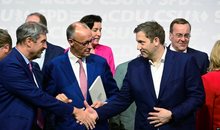
From defense to immigration, what does the new German government promise?
2025-05-06 09:08:42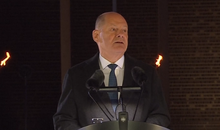
After 1,245 days in office, Scholz steps down as chancellor
2025-05-06 08:55:38


'Vote Exchange': Shkodra between the PS-PD rivalry and the "Doshi" factor
2025-05-06 08:29:28
Horoscope, what do the stars have in store for you today?
2025-05-06 08:23:05
Rain returns, what is the weather expected to be like during the day?
2025-05-06 08:06:41
Morning Post/ In 2 lines: What mattered yesterday in Albania
2025-05-06 07:50:44
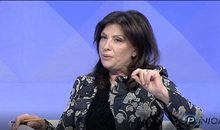
Topalli: Small parties have no chance of getting a mandate
2025-05-05 22:42:40
SP officials in prison for corruption, Rama: We are not a law firm
2025-05-05 22:36:42


Soul-touching hours: Discover when we are saddest and happiest during the day
2025-05-05 21:47:20
Alimehmeti: DP in Tirana gets more than 12 mandates
2025-05-05 21:34:33


Berisha: Rama knows Dibra as much as Toni Gogu knew Hajredin Pasha
2025-05-05 21:01:00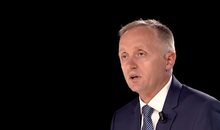

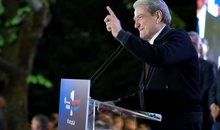



27-year-old drunk driver hits police officer in Peshkopi
2025-05-05 19:50:14
'Giro d'Italia' in Albania, how will vehicle traffic be diverted in Tirana
2025-05-05 19:36:32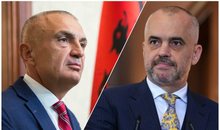
Meta: Rama is afraid of losing, that's why he calls for non-participation
2025-05-05 19:25:19
